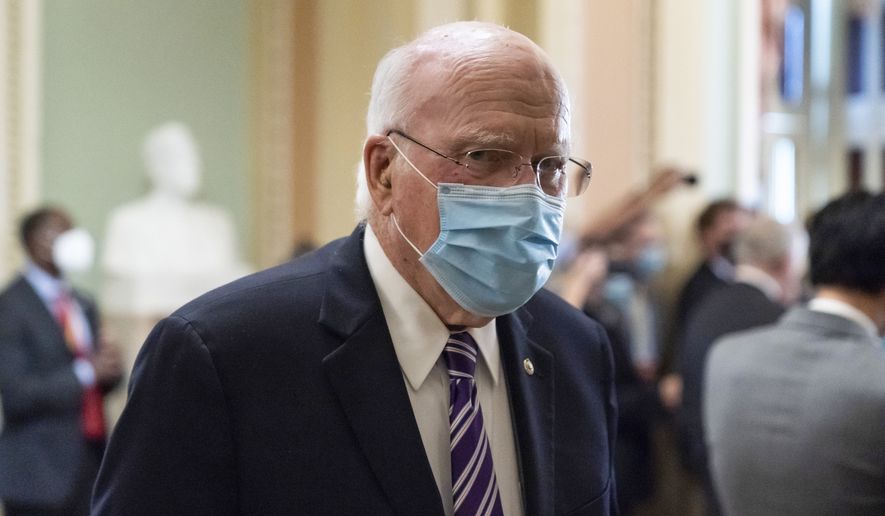Senate Democrats unveiled nine spending bills Monday that would surge domestic spending, pumping money into environmental protections and eliminating guardrails against taxpayer money for abortions.
The spending bills also would rescind nearly $2 billion in money Congress previously allocated toward building the border wall.
The Homeland Security bill, one of the nine, also trims detention capacity for illegal immigrants in ICE custody by 5,500 beds and cuts off funding for the three family detention centers altogether, and pushes for more migrants to be caught and released.
On abortion, the package deletes the longstanding “Hyde Amendment” compromise that limited taxpayer funding for abortions, and it expands the ability of federal money to go to organizations that perform abortions.
Non-defense spending is getting a 13% increase overall, with Democrats putting particular emphasis on the environment and education programs. Defense spending is getting a 5% increase.
Homeland Security was the notable exception. The department’s overall funding would be trimmed and the cuts might have been even deeper but for the $1.9 billion in border wall money Congress approved over the last few years that Democrats now want to repurpose.
The wall money would instead go to hiring child welfare workers for Border Patrol stations, supplying agents with body cameras, and doing environmental mitigation where border wall was previously built.
The bills cover fiscal year 2022, which technically began Oct. 1. The government is running under a stopgap “continuing resolution” that extends fiscal year 2021 funding.
The bills were written without Republican consent, though Appropriations Committee Chairman Patrick Leahy said they were meant to reflect both parties’ priorities. He said he hopes they spark bipartisan negotiations.
“As senators, and members of Congress, we should do our job, make the hard choices, and complete our work on behalf of the American people,” said Mr. Leahy, Vermont Democrat.
The bills mark the first time Senate Democrats have controlled the spending process since 2014, and they reveal a significant amount of pent-up score settling and priority shifting.
They also amount to partisan wishlists that set back the chance to reach a final deal, said Sen. Richard Shelby, the top Republican on the committee.
“Their bills are filled with poison pills and problematic authorizing provisions, and they remove important legacy riders on topics like terrorism, abortion and immigration that for years have enjoyed broad support on both sides of the aisle,” Mr. Shelby said.
In addition to major changes in immigration and abortion policy, Mr. Shelby said the bills also delete longstanding prohibitions on moving terrorism suspects from Guantanamo Bay, Cuba.
And the bills include a major funding injection for the IRS, and creates a $1 billion “climate change slush fund” out of the Federal Emergency Management Agency’s budget, Mr. Shelby said.
The nine draft bills released Monday cover most of the government’s operations. Three other bills, covering agriculture spending, energy and water programs and veterans’ affairs, were previously announced.
Should Congress be unable to reach an agreement on the 2022 bills, the government would either face a shutdown or else have to keep operating under 2021 funding levels, which were written when Democrats controlled the House and the GOP had the Senate and White House.
• Stephen Dinan can be reached at sdinan@washingtontimes.com.




Please read our comment policy before commenting.